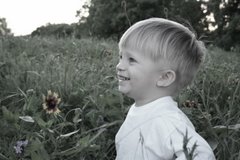So with all of the civil unrest in the states, I've been thinking a lot about our time in the Bronx. Particularly about those people who are uniters. Those who build up the community and reach out to others especially those who are different from themselves. Ada Cameron was one of those people. She was a sweet old black woman who walked with a cane. But from the moment we joined the church in the Bronx, she was like a grandma to my kids. I really wasn't prepared to live in the Bronx. Of course I knew it was considered a dangerous place and that it would be very diverse. What I didn't realize is that there really weren't that many white people and that for me it would feel like moving to a different country. In fact I have reflected many times on how living in rural England felt much like where I grew up and even living in Japan has had a distinctly American feel to it (because of our affliliation with the Base) but living in the Bronx was really the most foreign experience I have had as an adult. I thought before we moved there that my normal everyday life would be very different, but that I would find sameness on Sundays when I went to church. The opposite actually ended up being true. We lived in medical school housing. A 29 floor building within a complex of 3 buildings, a nice playground, fitness center, grassy area for the kids to play in, lots of concrete for the kids to ride bikes and draw with chalk, all surrounded by a beautiful wought iron fence. We had security guards upon entrance to the building. Everything was very safe and beautiful. There were lots of different cultures represented there and lots of diversity I had never been around, but everyone living there was going to be a doctor some day, or a PHD doing medical research. Even with differences in gender, religion, and race, there was a bit of sameness about the goals and aims of everyone in those buildings. Not everyone there started in a life of privilege, but all had learned how to get there; How to navigate the system and follow social norms. I think that was the main difference. The norms, the social currency was the same as that which I grew up in. People didn't necesarily have the same standards, but they followed a lot of the same social norms.
At church the rules were different. I'm a member of the church of Jesus Christ of Latter day Saints. The gospel, the doctrine is the same throughout the world, but culturally our ward in the Bronx was much different than any I had ever been in. To begin with, our building was being renovated, so we met in a store front deep in the south Bronx. We had probably 50 members who came regularly, but there were over 800 on our rolls. There were 16 missionaries assigned to our ward. People would regularly shout AMEN and HALLELUJAH when they agreed with the speaker. Speakers got up and bore their testimonies about leaving a life of prostitution, kicking drug addictions, and having their kids taken away. It was real and meaningful and sometimes bizarre. Ward potlucks featured sofrito and pigeon peas and green plantains rather than ham and funeral potatoes and green jello. The people were vibrant. they kissed everyone. I wasn't used to being kissed over a dozen times everytime I went to church, but I began to appreciate the love I was shown and kiss back. My husband was quickly put in the bishopric. This meant that I got to wrestle by myself first 2 little boys under 2 and then 4 kids under 5, every Sunday. Sister Cameron was the kind of lady that would always have a sucker in her purse to give to the rowdy kids to try and keep them quiet. We got quite a few suckers. She would regularly bring me presents for the boys; new shorts, little candies for no reason. She had been a mother to over 20 children. I never learned if these were 20 children of her own or adopted. She usually came to church with her son James. She always wore a hat and was smartly dressed. She was kind. She held a weekly family home evening group and invited many to attend. She was a faithful lady until the end. I appreciated the kindness she showed to me and my family. She did not think "these people will only be here for a few years, they will soon move on and be rich doctors, why bother". She saw us where we were. Broke, with a young family in a foreign environment. Our white skin and white privilege didn't matter. And while I recognize that I really don't know what it is like to live a lifetime in the south Bronx, to only have small parks with no trees or grass for my kids to play on, to be poor without the reassurance that we would be able to pay off our loans, I will forever be grateful for kind people who reached out and made us feel loved. There were many in that community including, Vashon Moore, Smiley Castellar, Patricia Manga, Granny Roach, Erica Maldonado, Maria Ramdan, Maria Calderon, Carol, Barbara Kaufman, Emilia Erezi, Valecia Green, Heather Knight, Nancy Latimer, Spring Stanger I hope I can do the same for those in my community.
Tuesday, April 27, 2021
Subscribe to:
Comments (Atom)
